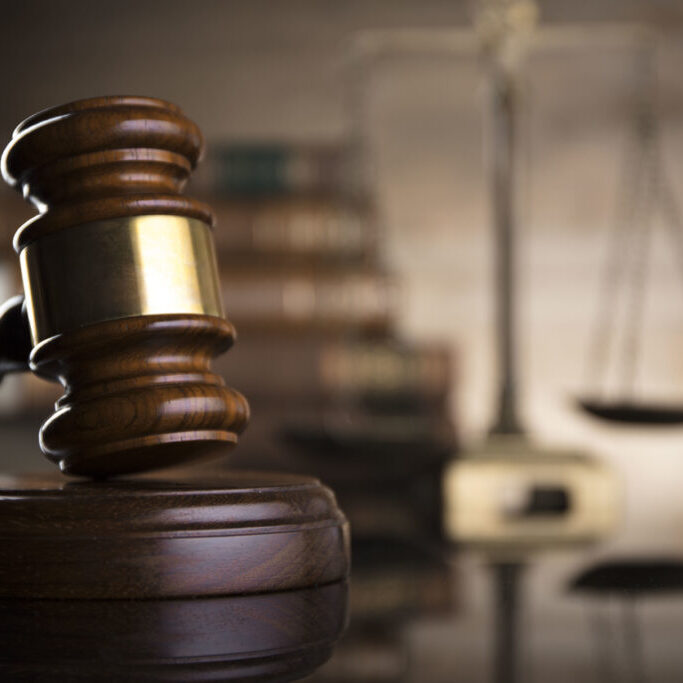Insights < BACK TO ALL INSIGHTS
CFTC Wins Suit Against DAO, With Potential Broad Implications for DAO Ecosystem
CFTC Wins Suit Against DAO, With Potential Broad Implications for DAO Ecosystem
By: Jake Gray
The Commodities Futures Trading Commission (“CFTC”) has only brought one lawsuit against a Decentralized Autonomous Organization, or a DAO, which was recently decided in federal court. The case involved a decentralized finance trading protocol “that had transformed into a decentralized autonomous organization, a DAO, offering leveraged and margined retail commodity transactions to the public,” according to CFTC Chairman Rostin Behnam.[1]
On June 8th, 2023, U.S. District Judge William H. Orrick granted the CFTC default judgment, ruling that Ooki DAO acted unlawfully as an unregistered futures commission merchant, or FCM. Alongside the payment of a civil monetary penalty and a permanent ban from trading and registration, Ooki Dao, and any third-party web-hosting provider or domain-name registration service, were ordered to shut down the Ooki DAO website and remove its content from the Internet.
The case is significant in a few ways. The most critical consequence is that it establishes that DAOs may face legal consequences for their activities, in spite of commonly held notions to the contrary in the decentralized finance industry. Further, while the court order does not necessitate shutting down of the blockchain protocol, which is technically quite cumbersome, the ruling orders third-parties to remove all Ooki or Ooki-related contents from the Internet within their control, potentially making it more difficult for DAOs to receive services in the future.
CFTC v. Ooki DAO
While some DAOs are incorporated legal entities within which directors and members use various mechanisms on public block-chain systems to govern entity decision-making, as far as regulators are concerned, many digital asset organizations structure themselves as DAOs without legal incorporation in an attempt to evade regulatory oversight, especially when such groups remain unincorporated.[2] The thought behind this is that, because the group is decentralized and thus no single person or entity responsible for operations or outcomes, then DAOs are not capable of being held liable (and thus enforcement proof) as they operate only as a loose collection of individuals coordinating amongst each other. Crucially, in the case of Ooki DAO, neither the entity itself nor any member of it responded to or defended the DAO from the allegations, likely in an attempt to avoid being presumed the DAO’s spokesperson and any concomitant personal repercussions that would follow.
As an aside, generally speaking, DAOs make decisions by means of governance tokens whereby holders of the tokens deliberate collectively with individual votes apportioned in some proportion to the individual’s holdings.
Regulatory evasion is not so simple, however, as has been illustrated by Ooki DAO, whereby the CFTC initially established its potential regulatory authority over DAOs by means of a judge’s holding in December 2022. In this effort, the Commission filed two original orders.
First, the CFTC issued a settlement order against bZeroX, LLC (“bZeroX”) and its founders Tom Bean and Kyle Kistner “for illegally offering leveraged and margined retail commodity transactions in digital assets; engaging in activities only registered futures commission merchants (FCM) can perform; and failing to adopt a customer identification program as part of a Bank Secrecy Act compliance program, as required of FCMs.” Bean and Kistner settled for a $250,000 civil monetary penalty and a promise not to violate the Commodity Exchange Act (“CEA”) or other CFTC regulations again.[3]
Second, and most notably, the CFTC filed its enforcement action in federal court against Ooki DAO, bZeroX’s successor, for the same violations.[4] To do so, the CFTC classified Ooki DAO as an “unincorporated association” under federal law, which is defined as a voluntary group of persons, without a charter, formed by mutual consent for the purpose of promoting a common objective.[5] The original CFTC Order stated:
“An unambiguous way that individuals join together to govern the Ooki Protocol is by voting their Ooki Tokens. Once an Ooki Token holder votes his or her Ooki Tokens to affect the outcome of an Ooki DAO governance vote, that person has voluntarily participated in the group formed to promote the common objective of governing the Ooki Protocol and is thus a member of the Ooki DAO unincorporated association.”[6]
The federal court agreed with the Commission on this fact, finding that the DAO could be sued for the alleged violations of the law. This initial holding chipped away at any illusions about the nature of DAOs and their capacity to evade regulatory oversight before the final ruling eroded the notion entirely.
In its precedent-setting decision, the court held that Ooki DAO is a person under the CEA and therefore can be held liable for violations of the law, violations which the court also affirmed Ooki DAO had committed as charged.
Reflecting on the decision, the CFTC Division of Enforcement Director Ian McGinley issued a warning to DAOs:
“The founders created the Ooki DAO with an evasive purpose, and with the explicit goal of operating an illegal trading platform without legal accountability…This decision should serve as a wake-up call to anyone who believes they can circumvent the law by adopting a DAO structure, intending to insulate themselves from law enforcement and ultimately putting the public at risk.”[7]
[1] https://www.cftc.gov/PressRoom/SpeechesTestimony/opabehnam31#_ftn47
[2] Notably, in 2021, Wyoming became the first state to allow DAOs to register and operate in the state as limited liability companies, thereby affording DAO’s the same legal rights and protections as those of traditional business entities.
[3] https://www.coindesk.com/policy/2022/09/26/cftcs-ooki-dao-action-shatters-illusion-of-regulator-proof-protocol/
[4] Complaint: Ooki, et al. (Click to download the CFTC’s Complaint.)
[5] Order: BZeroX, LLC, et al. (Click to download the CFTC’s Order.)
[6] Ibid.





